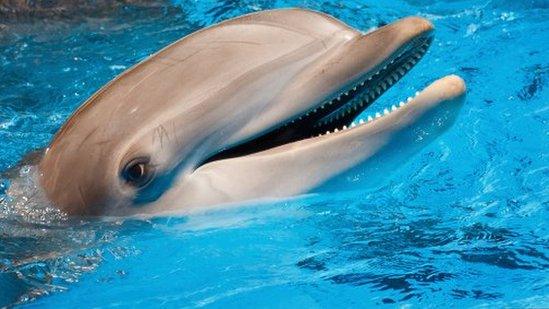Clet the lone dolphin spotted with company off Pembrokeshire
- Published
Clet was filmed off Ramsey Island
A dolphin who is usually seen travelling alone has been spotted off the Welsh coast - and this time he has company.
"Clet" the bottlenose dolphin - recognisable by his damaged fin - was last sighted along the Cornwall and Devon coastline in 2015.
Known for his "unusual" solitary lifestyle, Clet has previously been spotted in the Scottish Highlands.
Now Clet has been seen with 40 other dolphins in Pembrokeshire's waters.
He treated boat trippers and staff at Falcon Boats to a close up encounter last Thursday as he swam along the bow near Whitesands Bay and Ramsay Island.
"As we headed slowly west, a few came over and swam alongside the boat and started bow riding and one that was bow riding was particularly noticeable due to a damaged dorsal fin," said Ffion Rees, director of the boat company.
"They stayed with us for about 15 minutes before heading off together with purpose in a westerly direction."
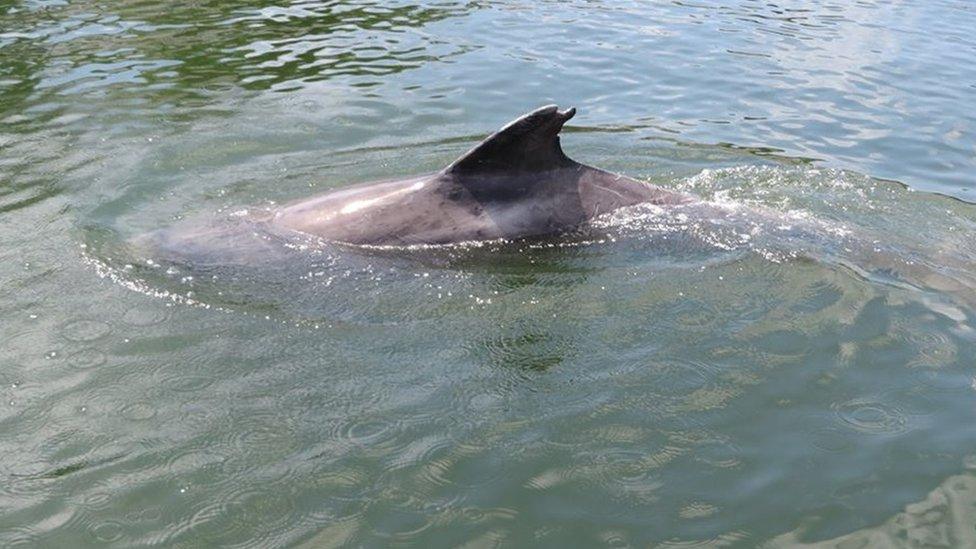
Clet is recognisable by his damaged fin
Clet was first sighted in the Cornish waters in 2011, travelling around the country from as far south as Portland in Dorset, up to the Scottish Highlands.
In 2014 he was sighted off Ireland on 20 different occasions.
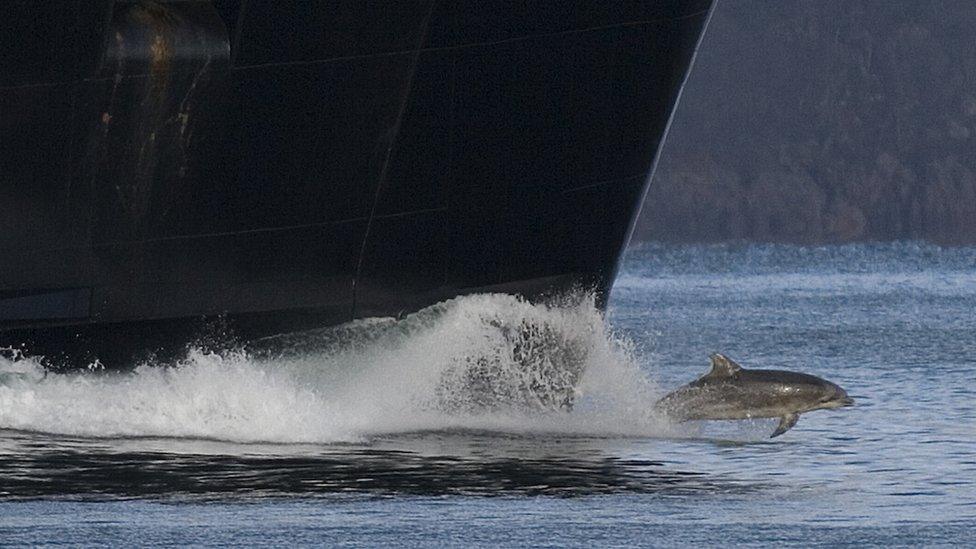
Clet was spotted in the sea off Mull, Scotland, in 2014
Katrin Lohrengel of the Sea Watch Foundation, said that even by bottlenose dolphin standards, Clet is an unusual case, not least because he travels alone.
"Dolphins are usually social animals but so-called 'solitary social dolphins' like Clet are a well-known phenomenon around the world and several have been reported in the UK and Ireland in previous years," she said.
"It is great to see that Clet has resurfaced."
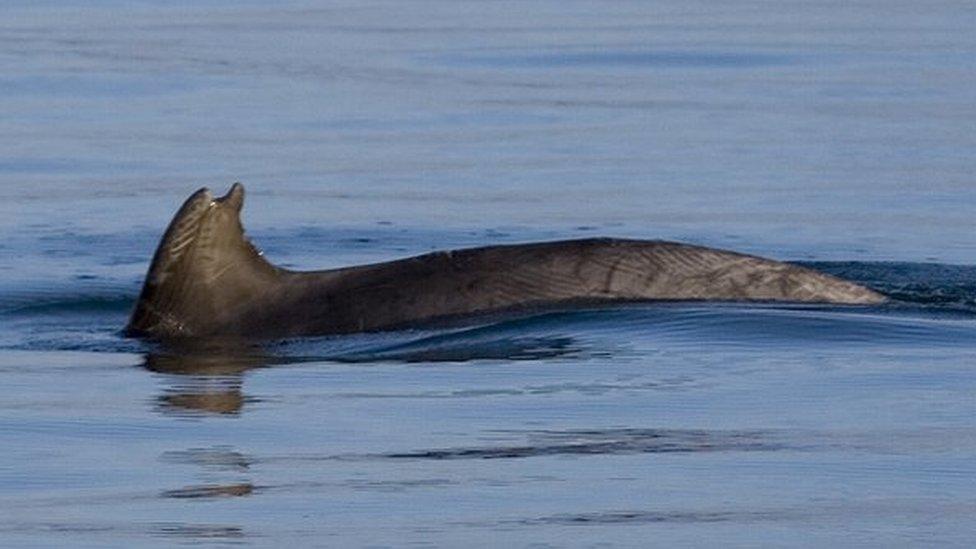
Clet has distinctive scarring
Ms Lohrengel added that solitary dolphins could be living alone for several reasons including environmental pressures such as food availability, habitat destruction, predators, reproductive strategy or human interference.
- Published10 August 2014
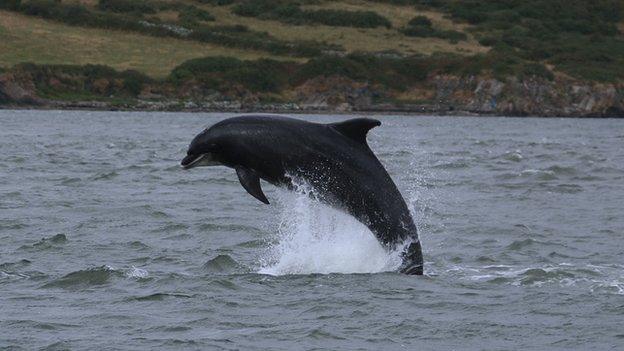
- Published23 June 2018
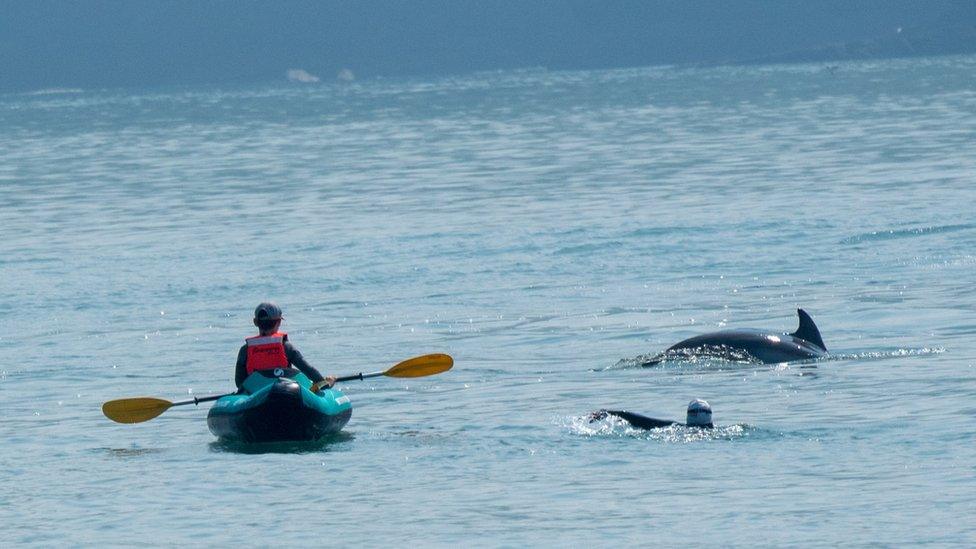
- Published5 December 2014

- Published2 October 2014
